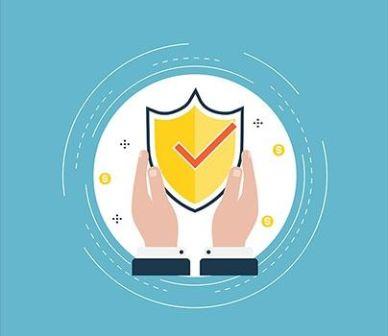Free Security Tips
10 Most Useful tips for your users on Cyber Security
The web has become a place rife with malicious contacts, trojans and viruses. Data breaches are becoming more common, and more vulnerable than ever before are unsuspecting users. Users need actionable to-that do’s can enable them to remain alert and comfortable online when one click can cost thousands and even millions.
1. Reckless Clicking Without Thinking
Just because you can click on it doesn't mean that you have to. Remember, a single click can cost hefty amount to you. Malicious links can cause harm in many different ways such as installing malware or virus in your machine, so be sure to check links before clicking it to ensure they are from trusted source
2. Use Two-Factor Authentication
Having a good password is crucial, but it's even more important to have two-factor, or multi-factor, authentication. This approach includes two levels of security measures so even if hacker is able to obtain your password there is an extra layer of security in place to ensure that your account is not hacked.
3. Watch Out for Phishing Scams
With more than 3 billion fake emails sent daily phishing emails are considered to be the greatest cybersecurity threats now a days as users can easily trap in phishing emails. A hacker will disguise as someone that the recipient might be familiar with in a phishing attack to trick them into opening a malicious file, revealing sensitive information or credentials, or opening software that infects the device of the recipient with a virus.
By avoiding emails from unfamiliar senders, looking for grammatical errors or any inconsistencies in the email that look suspicious, and hovering over any link you receive to verify what the destination is, the best way to identify phishing scams.
4. Keep Track of Your Digital Footprint
You will guarantee that you catch suspicious activity when you track your accounts. Can you remember where you have online accounts and what details, such as credit card numbers for easier payments, is stored on them? Keeping track of your digital footprint, including social media, and removing accounts you don't use, while ensuring that you set strong passwords (that you update regularly) is essential.
5. Keep your devices Up to date
When security bugs are detected, software patches may be released. You're not alone if you find these app update alerts to be irritating. But when weighing up rebooting your system versus placing yourself at risk for ransomware and other kinds of computer infection, you may consider them the lesser of two evils.
6. Connect Securely
Nearly every tech expert has dished out cyber security tips on this under the sun, but many somehow don't follow this advice. You may be tempted to attach your computer to an unsecured network or free Wi-Fi network, but it's not worth it when you consider the implications. Only connect your devices to private networks, especially when handling sensitive information.
7. Secure Your Mobile Device
Secure Your Mobile Device It is important that you also get into the habit of securing your presence through your mobile device. Use strong passwords and biometric features, make sure your Bluetooth is switched off, don't connect to any open or public Wi-Fi automatically, and download with caution.
8. Beware of Social Engineering
When hackers can’t find a security flaw in your device or software, they’ll attack in other ways most commonly through social engineering. In this attack hacker attack on the user's mind to gain access to systems and information, rather than on the computer. Cyber criminals come up with innovative ways to dupe people, particularly with information publicly accessible online and through social media.
9. Back-Up Your Data
Storage does not cost much these days. There's no reason for not getting an important data backup. , Back it up in the cloud and in a physical place. Remember, your data may not necessarily want to be stolen by malicious threats and hackers, but often the end goal is to encrypt or delete it. To get an ultimate recovery method, back it up.
10. You Are Not Immune
"It won't happen to me," or "I don't visit unsafe websites," is the most detrimental thinking you may have. Cybercriminals don't discriminate in targeting all kinds of people. Only be proactive. "It is not possible to undo all errors with "ctrl + Z".




